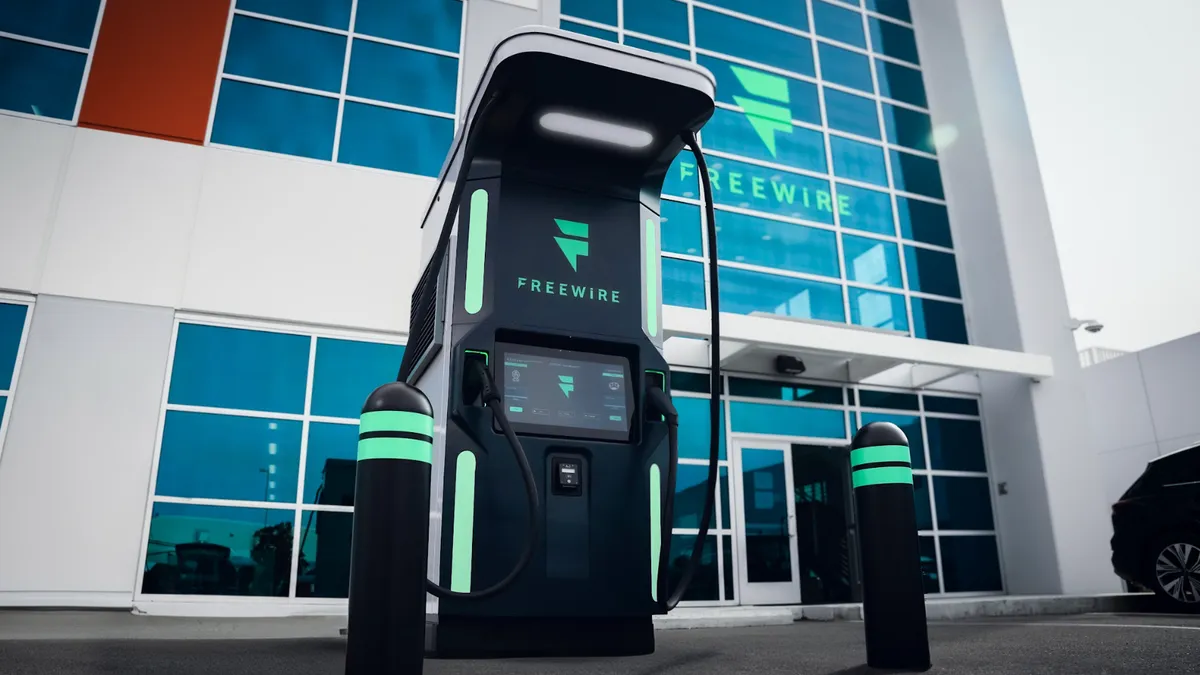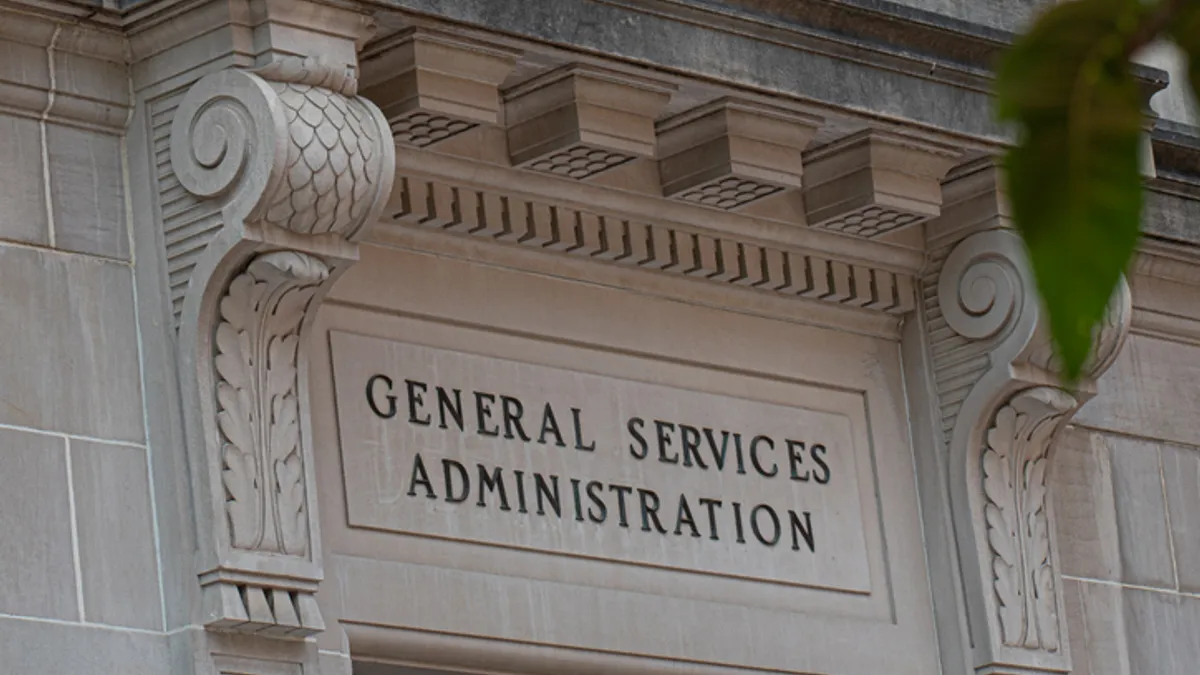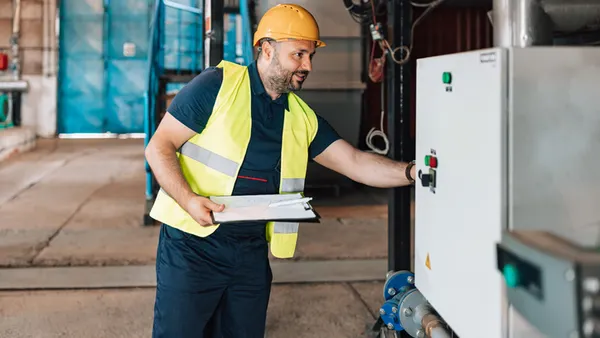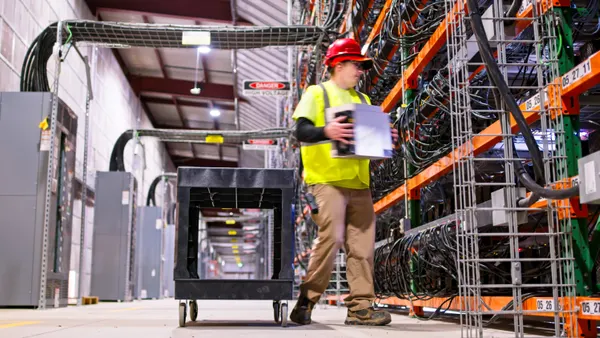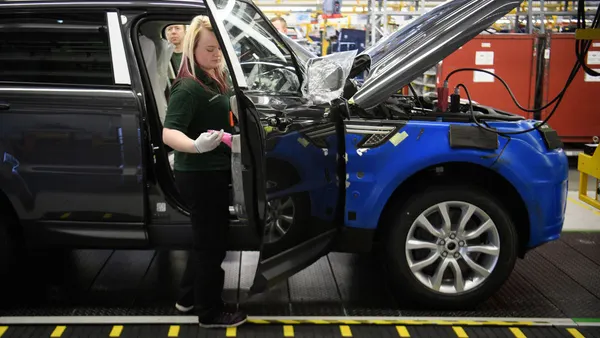Dive Brief:
- FreeWire Technologies says its first battery-integrated, bidirectional EV charging station, Boost Power Pro, launched in late February, will provide “ultrafast charging” and offer the benefits of backup energy storage systems.
- Each Boost Power Pro unit has two EV charging ports and a 150 kilowatt battery that can back up “critical power loads” like emergency lighting, points-of-sale and small appliances “for multiple days” during blackouts, FreeWire Senior Communications Manager Sara Dodrill said in an email. Boost Power Pro units can also power heavier equipment, such as liquid fuel pumps, according to a FreeWire launch video.
- Facilities managers can interconnect up to four Boost Power Pro units to provide additional site backup power, charge multiple EVs when the grid is down or charge heavy-duty EVs at speeds up to 200 kW, Dodrill said.
Dive Insight:
After years of flat or declining demand, U.S. grid operators expect nationwide electricity consumption to increase by 4.7% over the next five years, according to reports filed with the Federal Energy Regulatory Commission in 2023. But the inability to quickly connect new electricity generation to the grid is prompting widespread grid reliability concerns, amid aging electrical infrastructure, increasing frequency of extreme weather events and a growing volatility in fuel supplies.
Distributed electricity resources like FreeWire’s Boost Power Pro units can draw energy from the grid when power is flowing and provide backup electricity for critical building systems and EV fleets when grid power is not available. In outages, the units’ software “automatically taps into the energy stored in the integrated battery to provide emergency backup power to the site,” FreeWire said in a Feb. 22 press release.
Four interconnected Boost Power Pro units can store up to 600 kilowatt-hours of energy or enough to fully charge six standard-range Ford F-150 Lightning trucks, Dodrill noted. “The Boost Power Pro’s backup capability is scalable, which means that if a customer needs more energy or power, they can simply use multiple Power Pros to reach the ideal system size required for their backup needs,” Dodrill said.
Like other FreeWire products and unlike most other direct-current fast chargers, Boost Power Pro units “are designed to be compatible with any pre-existing electrical setup,” including standard single-phase 240-volt, three-phase 208-volt, and 400-volt electrical connections, according to the news release. Relative to other DC fast chargers, FreeWire’s products cost 20% less to install, according to its website, with the units charging EVs and providing site backup power through an onboard battery that discharges at speeds up to 200 kW.
Boost Power Pro, part of the company’s Pro Series which includes boost chargers, follows an agreement signed last month to deploy FreeWire’s direct-current fast charging infrastructure for GM Envolve’s customers.
Boost Power Pro units’ onboard batteries can help EV fleet managers avoid utilities’ demand charges during peak load periods, FreeWire said. Users can also cut operating costs by up to 70% by charging the batteries overnight, when power is cheaper, and tapping the stored power to fuel EVs during the middle of the day.
According to a FreeWire analysis, a single Boost Power Pro charger can additionally earn up to $11,500 annually after meeting on-site demand by providing “grid services,” where grid managers compensate distributed generation or battery owners to regulate network frequency or serve higher-than-expected loads, Dodrill said.
While not all North American electric grid regions compensate distributed energy providers, Boost Power Pro units can feed stored electricity back into the grid where permitted. Alberta is expected to be the most lucrative region in North America for grid service compensation, “followed closely” by California and New England, Dodrill said.
Correction: A previous version of this story gave an incorrect speed at which the Boost Power Pro units can charge EVs. The speed is 200 kW.


